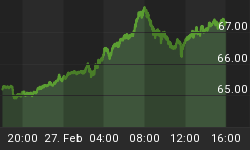The U.S. Senate is close to passing a new spending package after a preliminary 66 to 34 vote. It is called the AMERICAN WORKERS, STATE AND BUSINESS RELIEF ACT and its current size is $149 billion. The bill was introduced on March 1, 2010 by Senators Baucus and Reid. Details are ![]() here. It will go to the House soon. Technically, the package is an amendment to H.R. 4213, the Tax Extenders Act of 2009. That 269 page bill can be found
here. It will go to the House soon. Technically, the package is an amendment to H.R. 4213, the Tax Extenders Act of 2009. That 269 page bill can be found ![]() here.
here.
It's impossible to summarize legislation like this. The Senate summary alone has 14 pages of separate provisions. I count 93 provisions. These include energy subsidies, all sorts of specialized tax credits and subsidies, disaster relief, unemployment assistance ($81.1 billion), health care and other measures.
The White House supports the legislation.
What it all adds up to is a continuation of a large and intrusive federal government that is interfering in markets and activities that are none of its business, certainly unconstitutional, and certainly destructive to economic growth and the general welfare. The unconstitutional aspect is no longer a concern of Americans at large as they accepted this kind of government a long time ago. Americans do not sit around reading the Constitution and bemoaning violations of it. Neither does any branch of government, especially the Supreme Court. At best, Americans argue about this provision or that, or else attempt to make political hay out of what some politician says or does not say about some bill. But even those discussions are meaningless and lead nowhere. The top-down system of government manipulation goes on and on and grows and grows. Not that America is unique in this respect. From what I read about China, their political economy is nothing to write home about either.
Tax cuts will stimulate growth if they are paired with expenditure cuts and if the tax cuts are in across-the-board income tax rates that Americans can expect to be permanent. But subsidies for uneconomic activities that are disguised as tax cuts are worse than useless. And no one in his right mind can anticipate that any income tax rate is going to be permanent. The rational expectation is that the rates will rise. It is also rational to anticipate innumerable continued specific tax measures like those in this bill that are politically inspired.
I do not know whether or not the House bill, introduced and passed quickly in early December of 2009 was budgeted by the Obama administration. It probably was. That bill called for $31 billion is what it calls "tax relief". The Senate amendment is adding to its size considerably, by another $118 billion. This was probably not budgeted. Consequently, we can sit here and watch the U.S. debt be augmented by gargantuan amounts with nary a word said about it in the main stream media.
Am I in the minority to experience sticker shock? Are we already so accustomed to trillion dollar deficits that we ignore another $118 billion here and there? How many more bills like this lie in waiting? Bills to bail out states, pension funds, foreign countries, banks, the FDIC, and the GSEs, and a long list of others?
Bernanke recently repeated that the FED will not monetize the U.S. government debt. That statement contradicts what the FED has already done and is now planning to undo, if it can. But last June Bernanke said the same thing:
"Rep. Paul D. Ryan of Wisconsin, ranking committee Republican, said the rising bond yields were 'telling us that there is no free lunch,' and he cautioned that the combination of huge Treasury debt issuance and central bank purchases of Treasury bonds under a recently announced Fed program could be a dangerous mix.
"'The Treasury is issuing debt and the central bank is buying it,' Mr. Ryan said. 'It gives the alarming impression that the U.S. one day might begin to meet its financial obligations by simply printing money.'
"But Mr. Bernanke adamantly denied that would happen. 'The Federal Reserve will not monetize the debt,' he said. 'Either cuts in spending or increases in taxes will be necessary to stabilize the fiscal situation.'"
Very funny. The Congress is doing the opposite. It is raising spending and providing selective tax cuts that are often nothing more than subsidies to uneconomic activities. Who is going to blink, Mr. Bernanke or the U.S. Congress? Congressmen want to be elected. Bernanke is insulated from voters. Congress can amend the Federal Reserve Act at any time. Section 31 of the Federal Reserve Act states "The right to amend, alter, or repeal this Act is hereby expressly reserved." If Bernanke blinked on saving the GSEs, why he will not blink a few more times?
Suppose that he tries not to blink. Who then is going to fund the U.S. government and at what price?
I, for one, who have been incorporating endless trillion dollar deficits into my expectations have to admit that the latest $149 billion is giving me sticker shock. I saw Joseph N. Welch when he asked Senator McCarthy "Until this moment, Senator, I think I had never gauged your cruelty or your recklessness. Have you no sense of decency, sir, at long last?" I have reached that moment, actually reached it again, in which it is driven home to me that the recklessness of the U.S. government cannot be underestimated. It has abandoned all sense of decency, moderation, and rectitude.















